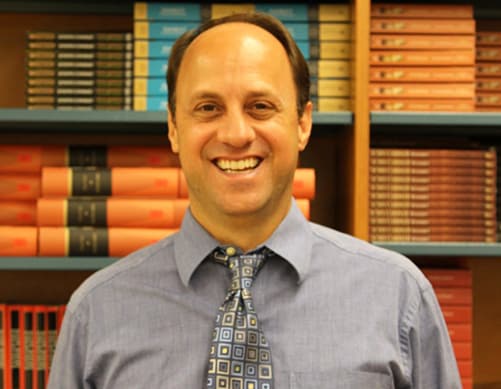Peter Frengel: How I Became an Oxfordian
June 1, 2021

I’ve taught Shakespeare for almost three decades. I’ve strutted the stage in live Shakespeare productions. I’ve shepherded dozens of students through the tourist sites in Stratford-upon-Avon. Park Honan, traditional Shakespeare biographer, was my thesis adviser at the University of Leeds. In other words, the Stratfordian force was strong with this one.
But something grew over the years — at first, just a gnawing doubt. Why was there a vacuum in the center of the biography of the Stratford man? Why was every biography of this man speculative, conditional, or written with the modal verbs would, could, and should have?
A decade ago, when Richard Paul Roe’s The Shakespeare Guide to Italy (2011) was published, I was intrigued by a number of thoughts while reading. Roe tiptoed around naming the author of the plays, and the absence of a name felt somehow true and significant. But mainly, Roe made a convincing case that the writer of the works had been there, knew Italy, and lived there a length of time, something very unlikely for the Stratford man to have done. My doubts grew.
The epiphany came watching Rhys Ifans embody the character of Edward de Vere (17th Earl of Oxford) in Anonymous (2011). I saw the film with another English teacher, and in the car on the way there we both chuckled about the authorship question with the casual, uninformed disdain of establishment scholars. We both enjoyed the film as an entertainment, but pointed out the historical inaccuracies on the way back in the car, and mocked the notion (ridiculous at the time) of the double incestuous Prince Tudor plotline.
Yet I was powerfully drawn to the character of de Vere, and struck by the portrayal of the Stratford man as an illiterate opportunist, which was not out of the question. To satisfy my curiosity I picked up Mark Anderson’s “Shakespeare” by Another Name (2005), and found it entirely convincing. This began a quest, over a number of years, to temper my understanding, and I’ve braved the crucibles of debate on both the Oxfraud website and in YouTube comments, where defenders of the faith are well-prepared and numerous.
Now I am teaching the authorship question as part of my Shakespeare unit, but I approach it as a research inquiry, not a lecture. I assign students various topics to investigate, including a defense of the traditional biography, and they present their findings to their classmates. The result, unsurprisingly, is that a strong majority of students conclude that Edward de Vere is the writer of the plays and poems attributed to Shakespeare. I don’t give them my opinion in advance, but they do ask, and I tell them.
I am an Oxfordian.
— Peter Frengel
“How I Became an Oxfordian” is a series edited by Bob Meyers. You may submit your essay on this topic (500 words or less in an editable format such as MS Word), along with a digital photo of yourself, to: communications@shakespeareoxfordfellowship.org. Also include a sentence about yourself, e.g.: “Jane Smith is a business owner in Dallas.” You must be an SOF member to submit an essay.
To join the SOF see our membership page. To read other essays in this series, click here.
Membership dues cover only a fraction of our budget, including all our research, preservation and programming. Please support the SOF by making a gift today!
Blue Boar Tavern: Wassail Q&A
Tuesday Dec. 17, 8pm E / 5pm P
Sign up below for event invites!
